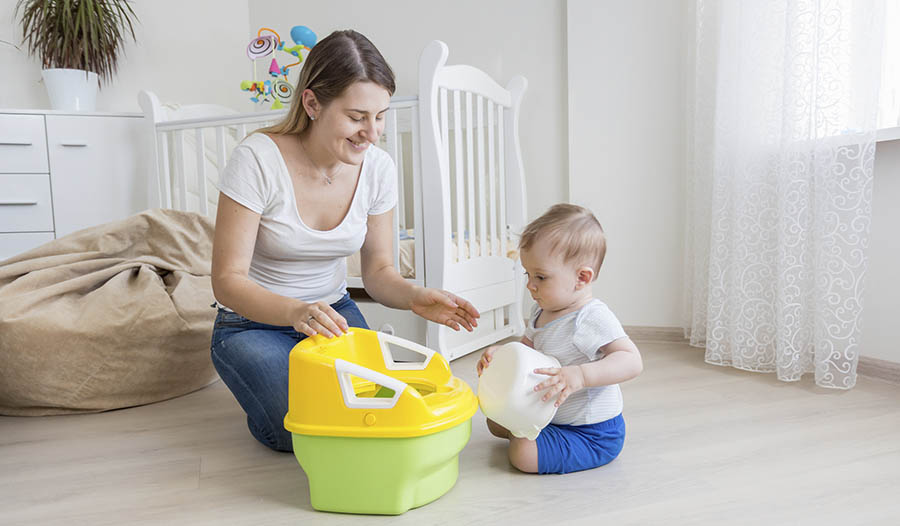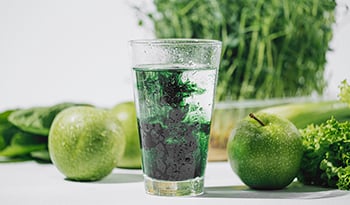Soluții naturale pentru constipația copilului

Institutele Naționale de Sănătate raportează că constipația la copii este un eveniment comun. Deși această afecțiune nu pune în pericol viața, cu siguranță poate afecta calitatea vieții copilului.
Constipația se caracterizează prin mișcări intestinale care apar mai rar decât de obicei sau scaune care tind să fie dure, uscate și dificil și dureroase de trecut. Următoarele sunt cauzele comune ale constipației la copii:
- Alergie la lapte: Conform unui raport din 1998 prezentat în The New England Journal of Medicine, aproximativ 70% din cazurile de constipație din copilărie se termină prin eliminarea laptelui de vacă din dietă și înlocuirea laptelui de soia sau orez.
- Lipsa de fibre: La fel ca în cazul adulților, o dietă bogată în fibre este importantă pentru sănătatea intestinală.
- Anumite medicamente sau medicamente, cum ar fi antiacide, opiacee și antidepresive.
- Diverse boli și anomalii anatomice, cum ar fi diabetul, bolile renale, hipotiroidismul, tulburările hipofizare sau nivelurile scăzute de potasiu.
- Reținerea scaunului: Este posibil ca copiii să nu defeceze deoarece sunt stresați de antrenamentul la olită, sunt jenați să folosească o baie publică, nu doresc să întrerupă timpul de joacă sau se tem să aibă o mișcare intestinală dureroasă sau neplăcută.
Înainte de a lua acel laxativ fără prescripție medicală, luați în considerare adăugarea unui supliment probiotic în rutina zilnică a copilului dumneavoastră.
Probiotice pentru copii
Există unele dovezi preliminare că probioticele, sau bacteriile benefice, sunt utile în cazurile de constipație din copilărie. Are sens. La urma urmei, bacteriile constituie aproximativ 30% sau mai mult din greutatea tipică a scaunului. În plus, aceste bacterii benefice îmbunătățesc sănătatea digestivă generală.
În loc să utilizați o singură tulpină de bacterii probiotice, cel mai bine este să utilizați o formulă multi-tulpină compusă din tulpini extrem de viabile și compatibile, cum ar fi Bifidobacterium bifidum , Bifidobacterium breve , Bifidobacterium infantis , Lactobacillus acidophilus , Lactobacillus lactis Lactobacillus lactis , Lactobacillus fermentum sau Lactobacillus rhamnosus . Există mai multe tulpini de bacterii în corpul nostru, deci este important să suplimentăm cu o formulă cu mai multe tulpini. Un supliment probiotic bun va enumera tulpinile pe care le include pe etichetă.
Rețineți că o mare parte din cercetările științifice asupra probioticelor implică analiza tulpinilor unice, deoarece este mai ușor să evaluați eficacitatea unei tulpini față de mai multe tulpini. Una dintre cele mai frecvent studiate tulpini de bacterii este Bifidobacterium breve.
Date
Un studiu pilot din 2011 prezentat în Nutrition Journal care a implicat 20 de copii (vârsta medie de 7,4 ani) cu constipație a demonstrat că dozele zilnice ale unui supliment probiotic (100 milioane până la 1 miliard de unități formatoare de colonii de Bifidobacterium breve) timp de patru săptămâni au crescut semnificativ frecvența mișcărilor intestinale. Copiii care au început studiul cu o medie de mai puțin de o mișcare intestinală pe săptămână s-au îmbunătățit la o medie de aproximativ cinci pe săptămână după patru săptămâni.
Copiii au prezentat, de asemenea, o consistență crescută a scaunului și o scădere semnificativă a incontinenței fecale - de la nouă incidente pe săptămână la începutul studiului la 1,5 în săptămâna a patra. În plus, a existat o scădere semnificativă a numărului de episoade de durere abdominală - 4,2 la începutul studiului la 1,9 în săptămâna a patra.
Studiile clinice anterioare au arătat că chiar și nou-născuții pot lua în siguranță probiotice la o doză zilnică de până la 9 miliarde de bacterii.
Cercetările științifice pozitive privind probioticele și constipația copilăriei oferă părinților o modalitate mai naturală de a ajuta la ameliorarea acestei afecțiuni incomode.
Declarație de declinare a responsabilității:Acest blog nu are ca scop să ofere un diagnostic.






























































































